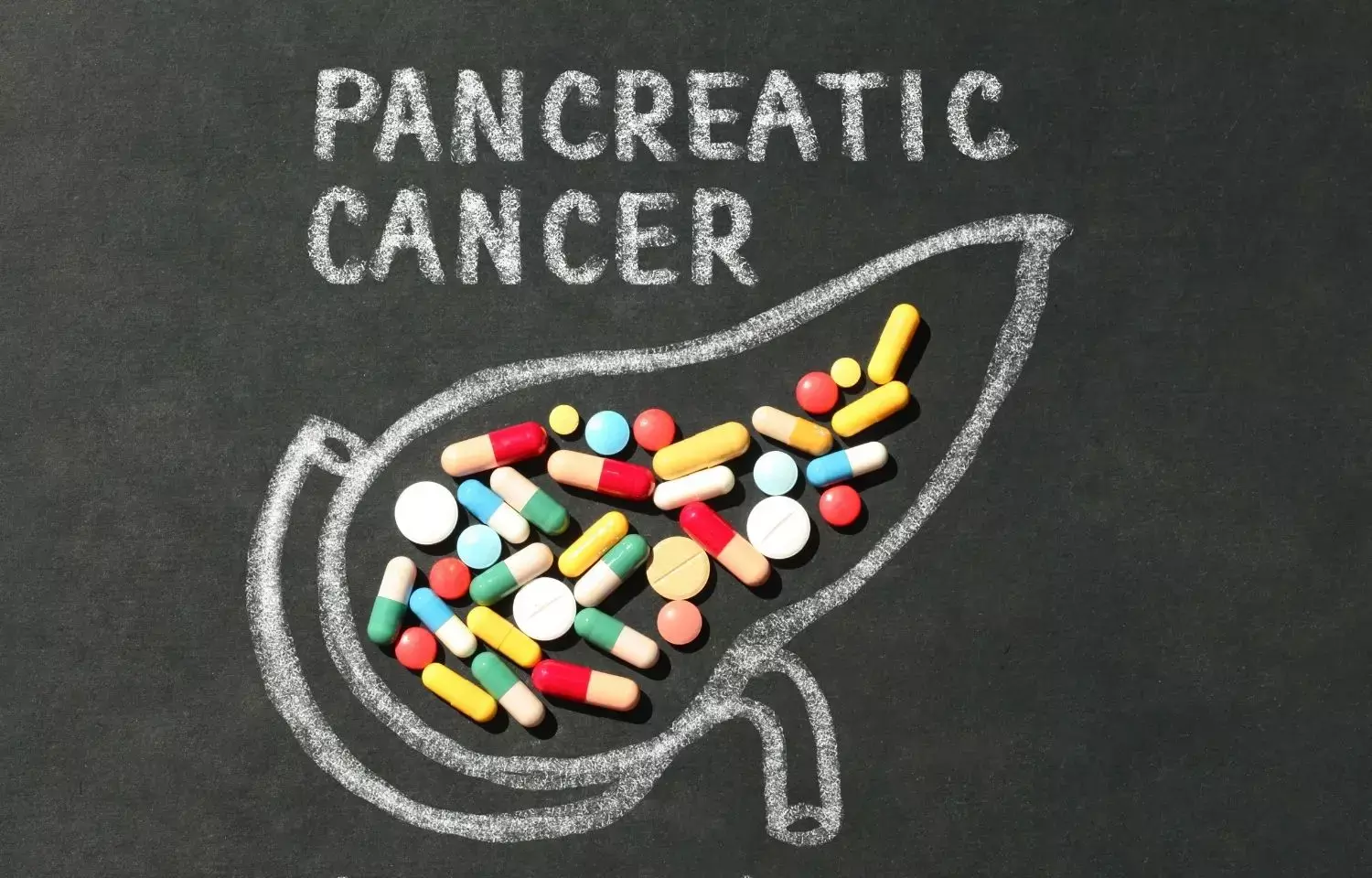- Home
- Medical news & Guidelines
- Anesthesiology
- Cardiology and CTVS
- Critical Care
- Dentistry
- Dermatology
- Diabetes and Endocrinology
- ENT
- Gastroenterology
- Medicine
- Nephrology
- Neurology
- Obstretics-Gynaecology
- Oncology
- Ophthalmology
- Orthopaedics
- Pediatrics-Neonatology
- Psychiatry
- Pulmonology
- Radiology
- Surgery
- Urology
- Laboratory Medicine
- Diet
- Nursing
- Paramedical
- Physiotherapy
- Health news
- Fact Check
- Bone Health Fact Check
- Brain Health Fact Check
- Cancer Related Fact Check
- Child Care Fact Check
- Dental and oral health fact check
- Diabetes and metabolic health fact check
- Diet and Nutrition Fact Check
- Eye and ENT Care Fact Check
- Fitness fact check
- Gut health fact check
- Heart health fact check
- Kidney health fact check
- Medical education fact check
- Men's health fact check
- Respiratory fact check
- Skin and hair care fact check
- Vaccine and Immunization fact check
- Women's health fact check
- AYUSH
- State News
- Andaman and Nicobar Islands
- Andhra Pradesh
- Arunachal Pradesh
- Assam
- Bihar
- Chandigarh
- Chattisgarh
- Dadra and Nagar Haveli
- Daman and Diu
- Delhi
- Goa
- Gujarat
- Haryana
- Himachal Pradesh
- Jammu & Kashmir
- Jharkhand
- Karnataka
- Kerala
- Ladakh
- Lakshadweep
- Madhya Pradesh
- Maharashtra
- Manipur
- Meghalaya
- Mizoram
- Nagaland
- Odisha
- Puducherry
- Punjab
- Rajasthan
- Sikkim
- Tamil Nadu
- Telangana
- Tripura
- Uttar Pradesh
- Uttrakhand
- West Bengal
- Medical Education
- Industry
Personalised mRNA vaccine shows promise in delaying pancreatic ductal adenocarcinoma relapse

A new study published in Nature Journal shows that adjuvant autogene cevumeran, a personalized mRNA neoantigen vaccine, in combination with atezolizumab and mFOLFIRINOX induces significant T-cell activity in patients with surgically resected pancreatic ductal adenocarcinoma (PDAC), It has been shown to correlate with late recurrence.
PDAC is the third leading cause of cancer death in the United States and the seventh leading cause of death worldwide. PDAC is largely insensitive to immune checkpoint inhibitors. Part of this insensitivity is due to the fact that PDAC has a low mutation rate and produces few neoantigens. Therefore, this study was conducted to test the efficacy of adjuvant atezolizumab on PDAC. Here, researchers tested a real-time mRNA neoantigen vaccine from surgically resected PDAC tumors in a phase I trial of an adjuvanted autogene cevumeran, a personalized neoantigen vaccine based on uridine-mRNA lipoplex nanoparticles. Synthesized. After surgery, atezolizumab (anti-PD-L1 immunotherapy), autogene cevumeran (up to 20 neoantigens per patient), and a modified version of four-drug chemotherapy. Endpoints included vaccine-induced neoantigen-specific T cells using high-threshold testing, 18-month recurrence-free survival, and oncological feasibility.
The key findings of this study were:
1. Sixteen patients were treated with atezolizumab and autogene cevumeran, followed by 15 patients with mFOLFIRINOX. autogene cevumeran was administered within 3 days of its scheduled time, was well tolerated, and induced highly potent de novo neoantigen-specific T cells in 8 of 16 patients, half of whom received multiple neo-vaccines.
2. Targeted antigens. Using a novel mathematical strategy for tracking T cell clones (CloneTrack) and a functional test, vaccine-activated T cells represent up to 10% of all vaccine-reactivated T cells in the blood. found to occupy Booster and long-lived multifunctional neoantigens containing specific effector CD8+ T cells.
3. At an average follow-up of 18 months, patients with vaccinated T cells (responders) compared with patients without vaccinated T cells (non-responders; 13.4 months, P = ) , showed a longer median recurrence-free survival (not reached). 0.003).
4. Responders and non-responders developed equivalent immunity to concurrent, unrelated mRNA vaccines against SARS-CoV-2, so differences in patient immune fitness did not distort this association.
Reference:
Rojas, L. A., Sethna, Z., Soares, K. C., Olcese, C., Pang, N., Patterson, E., Lihm, J., Ceglia, N., Guasp, P., Chu, A., Yu, R., Chandra, A. K., Waters, T., Ruan, J., Amisaki, M., Zebboudj, A., Odgerel, Z., Payne, G., Derhovanessian, E., … Balachandran, V. P. (2023). Personalized RNA neoantigen vaccines stimulate T cells in pancreatic cancer. In Nature. Springer Science and Business Media LLC. https://doi.org/10.1038/s41586-023-06063-y
Neuroscience Masters graduate
Jacinthlyn Sylvia, a Neuroscience Master's graduate from Chennai has worked extensively in deciphering the neurobiology of cognition and motor control in aging. She also has spread-out exposure to Neurosurgery from her Bachelor’s. She is currently involved in active Neuro-Oncology research. She is an upcoming neuroscientist with a fiery passion for writing. Her news cover at Medical Dialogues feature recent discoveries and updates from the healthcare and biomedical research fields. She can be reached at editorial@medicaldialogues.in
Dr Kamal Kant Kohli-MBBS, DTCD- a chest specialist with more than 30 years of practice and a flair for writing clinical articles, Dr Kamal Kant Kohli joined Medical Dialogues as a Chief Editor of Medical News. Besides writing articles, as an editor, he proofreads and verifies all the medical content published on Medical Dialogues including those coming from journals, studies,medical conferences,guidelines etc. Email: drkohli@medicaldialogues.in. Contact no. 011-43720751


